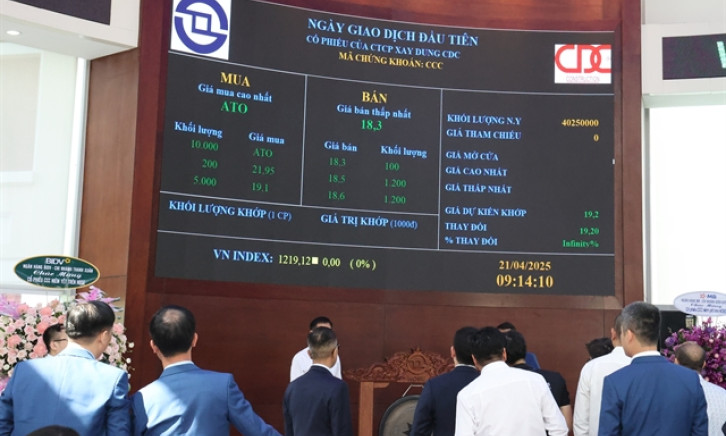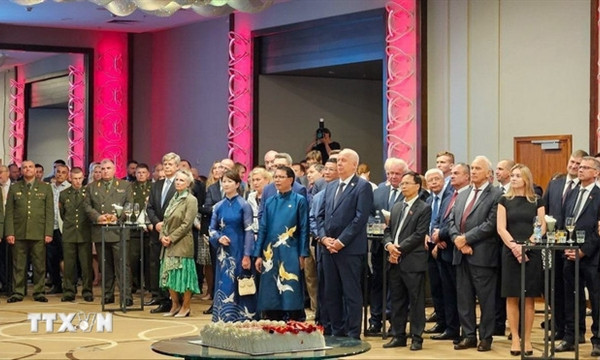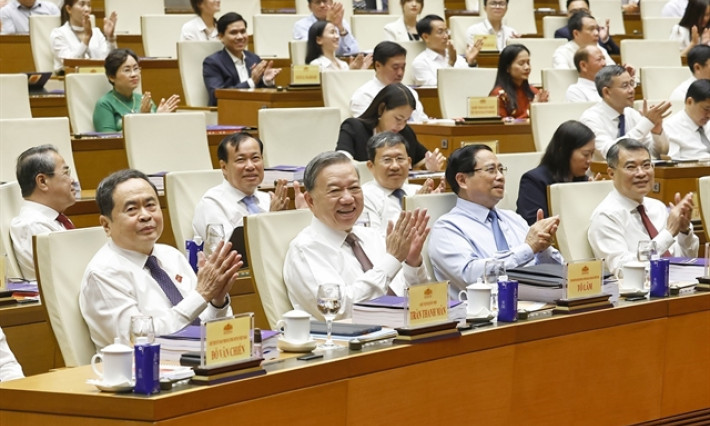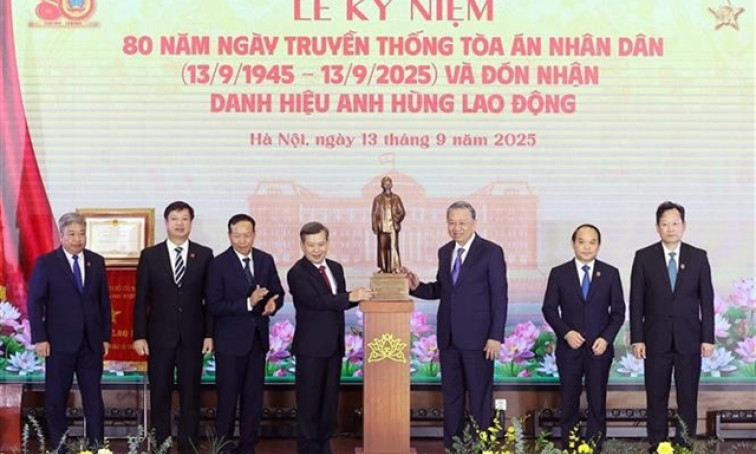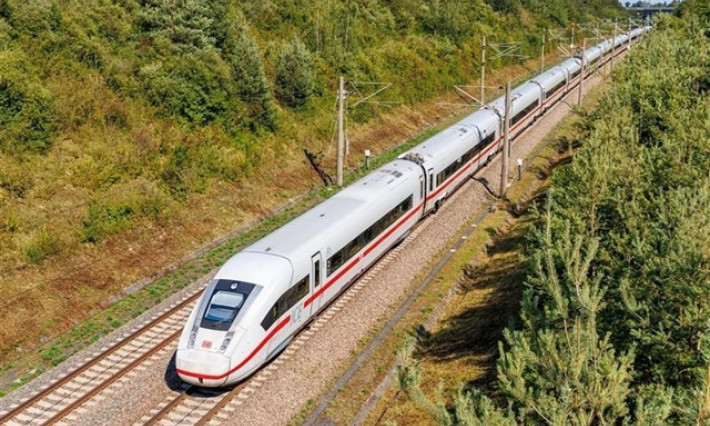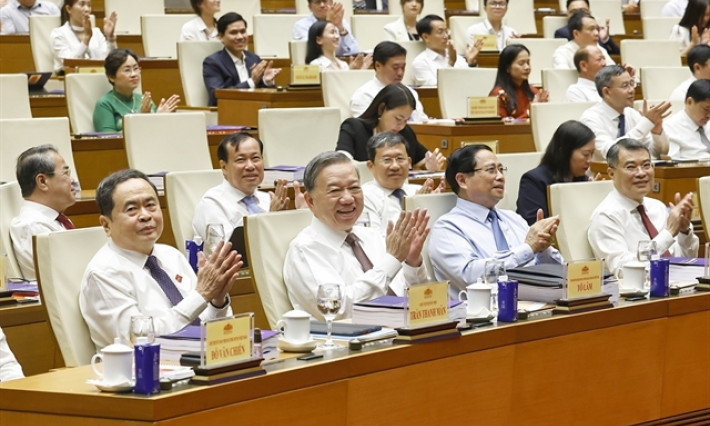PM calls for tourism boost to drive economic growth
In an official dispatch signed on April 10, the Prime Minister stressed that tourism must take a leading role in driving post-pandemic recovery and broader socio-economic progress.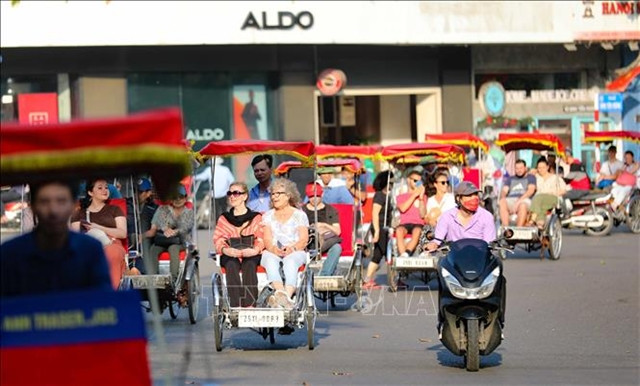
Prime Minister Phạm Minh Chính has called for urgent and sweeping measures to boost the development of Việt Nam’s tourism sector, positioning it as a key engine of growth as the country targets double-digit economic expansion.
In an official dispatch signed on April 10, the Prime Minister stressed that tourism must take a leading role in driving post-pandemic recovery and broader socio-economic progress. The document highlights the Government’s consistent focus on transforming tourism into a spearhead economic sector, following the Politburo’s directive outlined in Resolution No. 08-NQ/TW.
Tourism figures from 2024 point to strong momentum, Việt Nam welcomed 17.6 million international visitors, a 39 per cent rise from the previous year. Domestic travel reached 110 million trips, up 1.6 per cent. Total revenue from tourism hit around VNĐ840 trillion, a 24 per cent year-on-year increase. The first quarter of 2025 continued the upward trend, with international arrivals surpassing six million – the highest quarterly figure ever recorded – up 29.6 per cent compared to the same period in 2024.
To build on this progress, the Government has set ambitious targets for 2025: attracting 22 to 23 million international tourists, serving 130 million domestic travellers and increasing total revenue from tourism by 12 to 13 per cent year-on-year. These targets are expected to generate positive spill-over effects across other sectors and help push national GDP growth rate to at least 8 per cent, laying the groundwork for achieving double-digit growth pace in the years ahead.
To achieve these goals, the Prime Minister has tasked the Ministry of Culture, Sports and Tourism with stepping up promotional efforts and rolling out the 2025 tourism stimulus programme. The ministry has also been instructed to adopt modern technology, refresh promotional content and ensure that tourism campaigns – both at home and abroad – are delivered in a professional, coordinated and impactful way. A strong, distinctive national brand must be built around Việt Nam’s cultural identity, with both public and private sectors mobilised to expand global reach.
The dispatch underscores the importance of harnessing the power of media to raise awareness and stimulate demand in the domestic market. In coordination with the Ministry of Foreign Affairs, diplomatic missions abroad are expected to play a greater role in promoting Việt Nam’s tourism image. Tourism firms are encouraged to establish representative offices overseas, while overseas Vietnamese communities are seen as key contributors to promotional efforts. Progress on these initiatives must be reported by May 2025.
The Ministry of Culture, Sports and Tourism is also responsible for working with other ministries, sectors, and localities to launch coordinated tourism stimulus packages tied to specific services, products, and enterprises, with implementation due by the end of May.
Improving tourism products and experiences
Enhancing and diversifying tourism offerings remains a top priority. The Government is calling for greater private sector investment in modernising tourism infrastructure. Strategic, environmentally responsible investors are encouraged to develop integrated tourism complexes, national tourist areas, large-scale entertainment and hospitality projects, as well as high-end shopping and leisure centres in key destinations.
Emerging segments such as wellness tourism, eco-tourism, agricultural tourism, golf holidays, honeymoons and resort travel will receive special focus. The Culture, Sports and Tourism ministry has also been tasked with seeking opportunities to host major international events and strengthen Việt Nam’s role in the MICE sector (Meetings, Incentives, Conferences and Exhibitions). Meanwhile, national and international cultural tourism events tied to the entertainment industry will be promoted to boost visibility and attract a wider audience.
Deeper regional coordination is encouraged to build tourism products based on each locality’s unique strengths, creating signature experiences that are better connected with target markets. The Government is also pushing for the development of tourism-linked consumption – so-called 'on-the-spot exports' – of Vietnamese agricultural, cultural and industrial products.
Digital and green growth as long-term pillars
The Prime Minister reiterated that digital transformation and green growth must form the foundation of the tourism sector’s future. The adoption of digital and environmentally friendly technologies across tourism operations – from branding and marketing to resource management – should be accelerated. Smart tourism ecosystems, powered by digital platforms, should be developed to enrich the visitor experience. The Government also aims to encourage sustainable investment that leads to the creation of eco-friendly tourism products aligned with global consumer trends.
Tourism models supporting green growth – including eco-tourism, agricultural eco-tourism, community-based travel, cultural heritage exploration and wellness tourism – will be actively promoted. A report on implementation progress is expected by May 2025.
The ministry is also working with the Ministry of Finance and the State Bank of Việt Nam to encourage widespread adoption of cashless payment systems in tourism services, supporting electronic payment through smart devices to reduce cash use and streamline spending.
Making destinations more accessible
Improving accessibility is another key focus of the directive. The Ministry of Culture, Sports and Tourism, together with the Ministry of Construction and relevant agencies, is expected to strengthen multimodal connectivity – air, rail, road, maritime and inland waterways – both within the country and beyond. A report on progress is due to the Prime Minister by June 2025. The dispatch also calls for increased public-private investment to expand and upgrade airports, seaports and terminals in major tourist destinations.
In addition, the ministry must work with local governments to improve connections between transport hubs and key tourism sites, with a report due by August. Better destination management is also expected, with monitoring of visitor capacity and environmental safeguards, along with stronger inspections and enforcement to maintain a safe, civilised and welcoming environment for all visitors.
Visa policy and international cooperation
The Ministries of Public Security, National Defence and Foreign Affairs have been tasked with working alongside the Ministry of Culture, Sports and Tourism to review and propose more open, flexible visa policies. These include potential short-term visa exemptions and simplified entry procedures for tourists travelling under stimulus programmes or cultural diplomacy initiatives. These proposals are due by the end of April.
They are also expected to develop visa incentives for priority groups such as researchers, artists, elite athletes, scientists, investors and billionaires visiting for tourism or international cooperation programmes.

